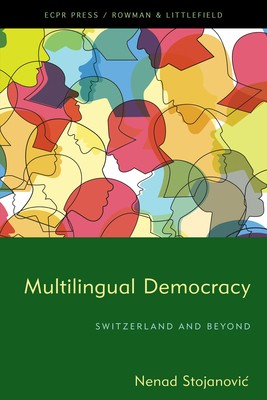
- We will send in 10–14 business days.
- Author: Nenad Stojanovic
- Publisher: ECPR Press
- ISBN-10: 1785523317
- ISBN-13: 9781785523311
- Format: 15.2 x 22.9 x 1.8 cm, hardcover
- Language: English
- SAVE -10% with code: EXTRA
Reviews
Description
Most experts on divided societies and institutional design broadly agree that it is more difficult to establish and maintain a stable, functioning democracy in a country with multiple languages and linguistically fragmented public spheres than in more homogeneous countries. Multilingual countries such as Canada and Belgium have been experiencing considerable difficulties in past decades (see the almost successful 1995 referendum on sovereignty in Quebec or the institutional deadlock and the rise of Flemish nationalism in Belgium since the 1970s). The prospects for the EU to become a viable democracy are even more haunted by multilingualism, considering that it has 24 official languages and no lingua franca. Switzerland, however, is also a multilingual country without a lingua franca, fragmented into 22 mono-lingual and three multilingual cantons, as well as into four distinct public spheres (German, French, Italian, Romansh). And yet it is widely seen as one of the most stable and successful democracies. Conventional wisdom in political science literature suggests that "consociational" political institutions account for the success of Swiss multilingual democracy. This book offers a different institutional explanation. The author argues that in mainstream literature important Swiss institutions - in particular direct democracy, Parliament and the federal executive - have largely been misinterpreted: they have been labelled as consociational, whereas they are rather a product of "centripetalism", an approach to institutional design in which political incentives are directed toward intergroup compromise because of the need to appeal to voters across group lines in order to form majorities. This approach to achieving long-term democratic stability stands in sharp contrast to consociationalism.
EXTRA 10 % discount with code: EXTRA
The promotion ends in 20d.23:41:48
The discount code is valid when purchasing from 10 €. Discounts do not stack.
- Author: Nenad Stojanovic
- Publisher: ECPR Press
- ISBN-10: 1785523317
- ISBN-13: 9781785523311
- Format: 15.2 x 22.9 x 1.8 cm, hardcover
- Language: English English
Most experts on divided societies and institutional design broadly agree that it is more difficult to establish and maintain a stable, functioning democracy in a country with multiple languages and linguistically fragmented public spheres than in more homogeneous countries. Multilingual countries such as Canada and Belgium have been experiencing considerable difficulties in past decades (see the almost successful 1995 referendum on sovereignty in Quebec or the institutional deadlock and the rise of Flemish nationalism in Belgium since the 1970s). The prospects for the EU to become a viable democracy are even more haunted by multilingualism, considering that it has 24 official languages and no lingua franca. Switzerland, however, is also a multilingual country without a lingua franca, fragmented into 22 mono-lingual and three multilingual cantons, as well as into four distinct public spheres (German, French, Italian, Romansh). And yet it is widely seen as one of the most stable and successful democracies. Conventional wisdom in political science literature suggests that "consociational" political institutions account for the success of Swiss multilingual democracy. This book offers a different institutional explanation. The author argues that in mainstream literature important Swiss institutions - in particular direct democracy, Parliament and the federal executive - have largely been misinterpreted: they have been labelled as consociational, whereas they are rather a product of "centripetalism", an approach to institutional design in which political incentives are directed toward intergroup compromise because of the need to appeal to voters across group lines in order to form majorities. This approach to achieving long-term democratic stability stands in sharp contrast to consociationalism.


Reviews